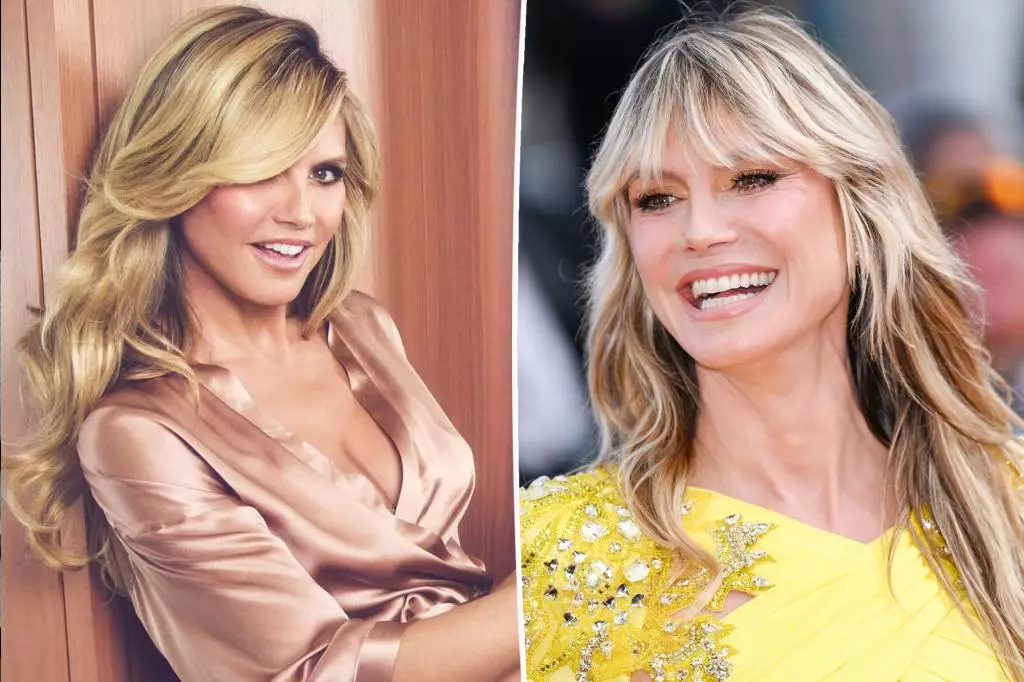In a society where the standards of beauty often seem unattainable, Heidi Klum stands out as a beacon of authenticity and vulnerability. Recently, the 51-year-old supermodel and judge of “America’s Got Talent” opened up about personal experiences that resonate deeply with many women, including issues like body hair growth that often come with aging. During an interview with Real Simple, Klum humorously acknowledged her own unexpected encounters with body hair, referring to both chin and breast hair. This candid approach not only challenges conventional definitions of beauty but also encourages others to embrace their natural selves.
Klum’s lighthearted anecdotes—including her description of chin hair resembling a “tree trunk”—reduce the stigma surrounding body hair, particularly for women. By sharing her experience with a mix of humor and relatability, Klum invites women to laugh rather than cringe at the natural changes their bodies undergo. She reminds us that these alterations are a universal experience, not a source of shame.
Lessons from Family
Another significant aspect of Klum’s philosophy comes from the influence of her mother, Erna Klum. Heidi attributes a large part of her self-confidence to the messages instilled in her from an early age. “You have to be happy with the person you see in the mirror,” Klum relays, emphasizing the importance of self-acceptance as a precursor to happiness. She presents her mother’s wisdom as a vital tool for navigating the complexities of self-image and societal expectations, especially as one ages.
The connection between mother and daughter extends beyond mere advice; Klum recently featured in a campaign with her 81-year-old mother, illustrating the enduring bond and shared values of self-love and confidence. This partnership accentuates the beauty of aging and portrays the potential for radiance at every stage of life.
The Power of Self-Perception
Emphasizing the transformational aspect of confidence over the years, Klum asserts that maturity offers a clearer understanding of self-worth. This outlook aligns with a growing movement that promotes body positivity and challenges the often restrictive beauty standards. Klum’s refusal to be hypercritical of herself fosters a supportive message during a period when many might struggle with self-image.
Moreover, her assertion that self-confidence improves with age serves as an empowering note for women feeling the weight of societal pressures. It reinforces the idea that aging can be an enriching experience, allowing individuals to cultivate a deeper appreciation for themselves.
Heidi Klum’s recent reflections on her body, confidence, and the wisdom gleaned from her mother offer a refreshing take on the beauty journey, particularly in a culture that frequently prioritizes youth over experience. By addressing the realities of aging with humor and grace, she challenges stereotypes and encourages a more inclusive form of self-love that recognizes beauty in its numerous forms, regardless of age. In a world fixated on physical perfection, Klum’s advocacy for authenticity and vulnerability serves as a powerful reminder to embrace who we are—flaws and all.

